
Dr. Devadasan in Nagaland to orient the Government on Health Financing (10-08-2015 to 14-08-2015)
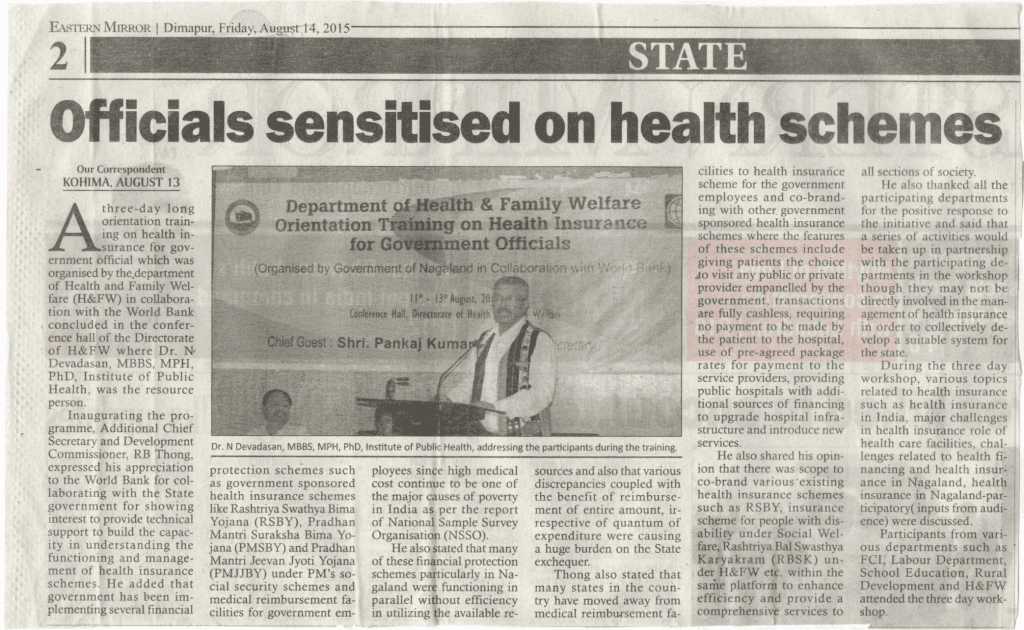


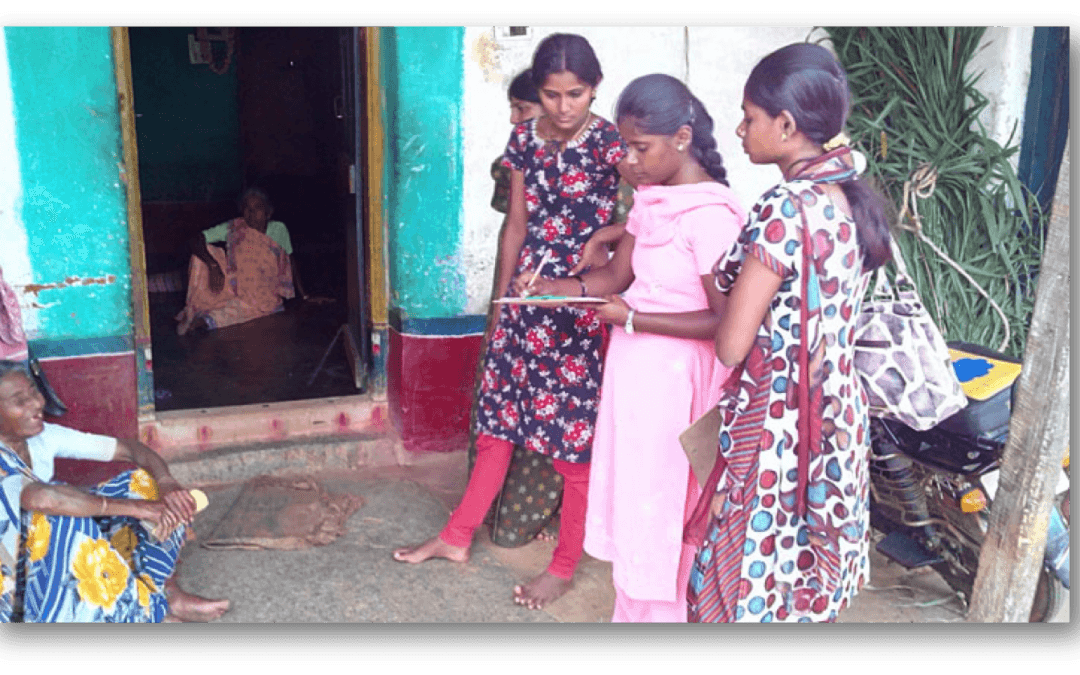
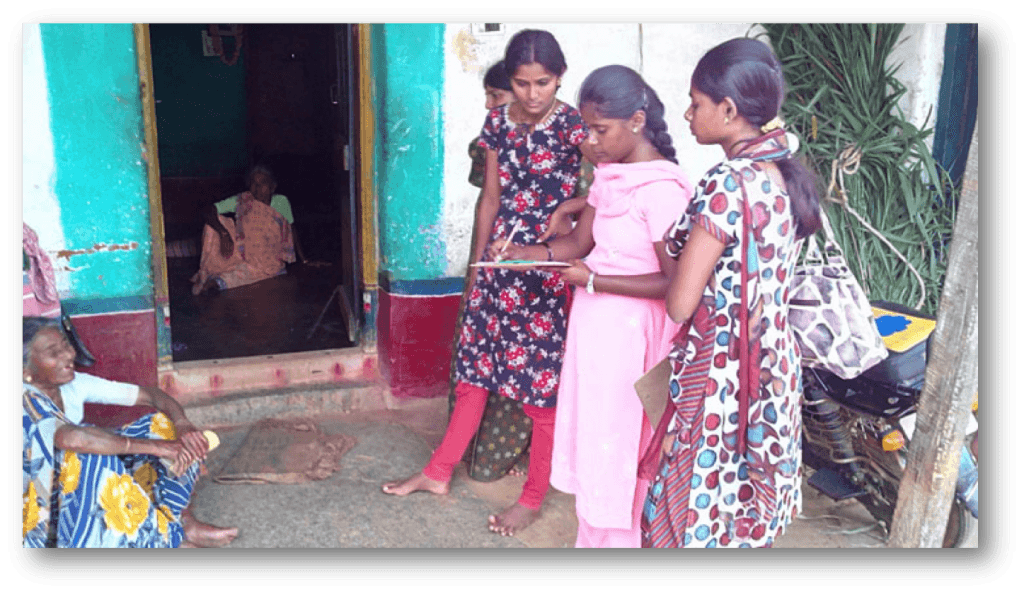
As we all know and recognise that community health workers (CHW) are the part of the community and have a significant role to play for our health improvement. There is plenty of scientific evidence wherein community involvement has increased the reach and impact of health systems. This works for communicable and non-communicable disease programmes as well as health promotion and prevention (TB, malaria and HIV care and prevention). I strongly believe that the success of pulse-Polio programme, was immensely contributed to CHW and similarly we could say that the TB-DOT programme has its success attributed to CHW. It has become clear that their support have unique advantages including their closeness with the community, their ability to communicate through people’s own culture and language and also to understand the needs of the communities and their ability to mobilize the community members.
Based on my experience with the CHW, I feel following are some of the objectives for their involvement into any programme:
1. They have acces s to the target community, as they are from the community and have acceptability within the community.
s to the target community, as they are from the community and have acceptability within the community.
2. Bridges the gap between the community and programme
3. Increases outreach for the programme
4. Community empowerment
5. Prompt response for any emergency need of the community
6. Facilitate improvement in surveillance and monitoring of any programme.
7. Facilitates in community mobilization for any activity.
Our government has acknowledged their contribution to the improvement of health status. I could easy quote an example from India, like ASHA (Accredited Social Health Associate) are local volunteers who are recruited through panchayat system and Village Health Committee
Under National Health Mission Programme (NRHM) with specific selection criteria. Following their recruitment, they are imparted training on regular basis for various programmes. For eg. in malaria programme, they are responsible for mobilizing community to accept the Indoor Residual Spray (IRS) and Long Lasting Insecticide Nets (LLINs) and also how to diagnose the case by using Rapid Diagnostic Treatment (RDT) kit, preparation of blood smear/slide for further investigation etc. They are also involved in collecting data from the villages for further assessment by the programme managers. Their performance is assessed from time to time by the state/district team and accordingly they are paid their incentives.
However, I have experienced that it was difficult to sustain them for a longer duration and we came across the following few challenges in the programme:
● Lack of supportive supervision and motivational activities.
● Overloaded with activities of multiple programmes;
● Logistic and supply management for various programmes;
● Acceptance by the community;
● Dependency of community on volunteers;
● Timely payment of performance linked incentive through single window system;
We felt that these challenges be addressed jointly by the community and the government authorities to sustain them for the benefit of the programme. Few suggestions include; a CHW should be assigned to manageable number of households instead of villages to avoid overburden of work; to provide integrated training; community could also contribute in supporting CHW through motivational programmes including honouring them and acknowledging their work from time-to-time. Having said this, we still cannot see a programme without their involvement and it would not be out of place to mention that the success of any health programme primarily depends on the these community volunteer.
Jatinder Chhatwal was a student of e-learning course in Public Health Management(ePHM) conducted by Institute of Public Health, Bangalore, India.
Disclaimer: IPH blogs provide a platform for ePHM students to share their reflections on different public health topics. The views expressed here are solely those of the authors and not necessarily represent the views of IPH.
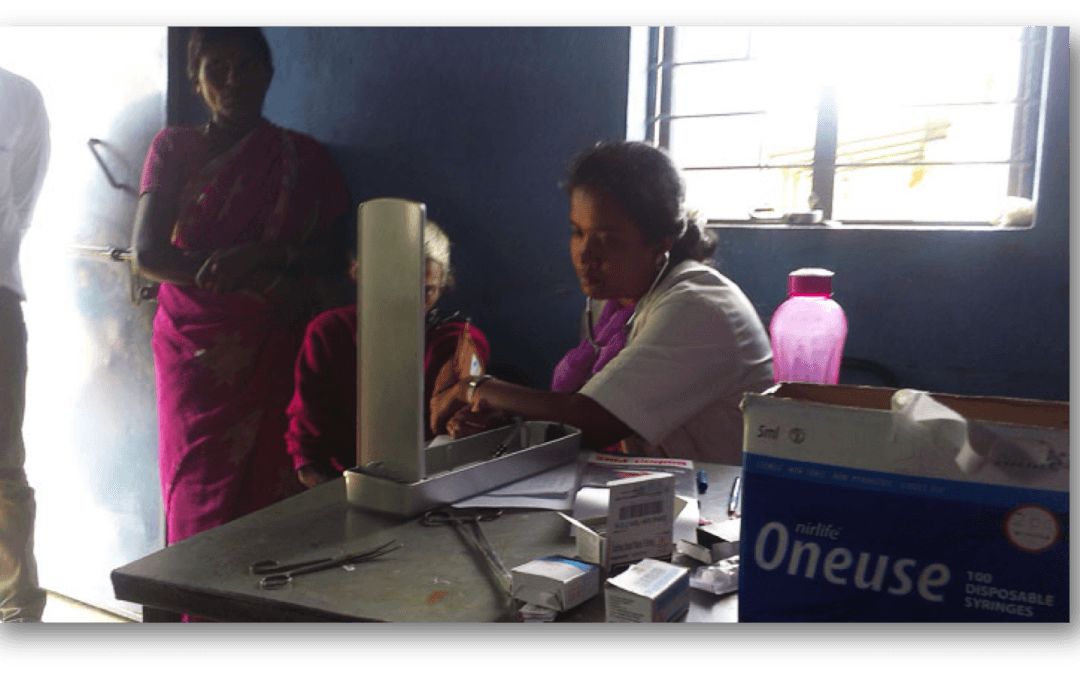
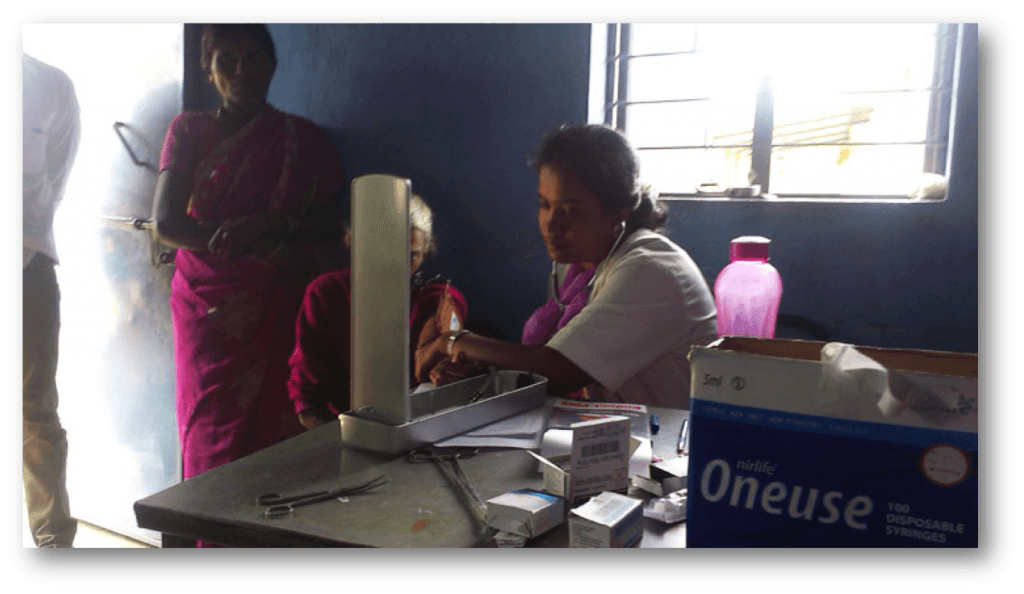
Health has long been defined as ‘a state of complete physical, mental and social well-being and not merely the absence of disease or infirmity ’. This clearly implies the need for promoting ‘holistic’ well-being and comprehensive healthcare that enables people to increase control over improving their own health. This process entails raising health awareness, enabling informed choice, disease prevention and control. Action in health promotion requires that efforts move beyond the boundaries of an absolute biomedical approach, towards one that takes into account the wider determinants of health including social, economic, political, cultural and ecological factors.
 Incorporating health promotion mechanisms at every level of our health system is essential. In this blog, I share a few reflections derived from my experiences with health promotion and disease control activity.
Incorporating health promotion mechanisms at every level of our health system is essential. In this blog, I share a few reflections derived from my experiences with health promotion and disease control activity.
HEALTH PROMOTION AND DISEASE CONTROL
I have in the past, had the opportunity to closely observe and be a part of health promotion programmes dealing with cancer awareness, prevention and care. While I had the opportunity to work within the Cancer Screening Programmes in the UK, it was clear that the programmes had been carefully designed, strategized, piloted and rolled out in an evidence-based manner. Understanding the disease, its anatomical symptoms and more so its aetiology at a molecular level, and the social factors influencing its development, held centre focus in the design and implementation of the population-wide disease control programmes. In Bangalore, I had the opportunity to set up a hospital-based cancer registry programme as part of the wider national programme. Being hospital- based, it was the first time that the ‘patient’ was brought into focus in my work with cancer, and in the process; the seriousness, complexity and reality of the disease with its wider issues governing all aspects of disease awareness, prevention or cure became more apparent and significant.
Simultaneously, my background in Immunology began to re-iterate the significant role our human immune system plays in linking the impacts of our environment with our health outcomes. The Government of India has made efforts to incorporate health promotion into the health system through various intervention-based disease control programmes. Such programmes are important in the short term; however their predominant vertical, biomedical (drug-based) approach is futile for sustained disease control. They fail to consider the wider social determinants of health (SDH) that govern individual and population immunity. One such vertical intervention is the DOTS–TB Control.
Programme introduced under the NRHM.
Tuberculosis (TB) remains a major national and global health problem and is no longer only a disease of the poor; but rather a disease of compromised immunity. Various factors like financial poverty, undernourishment, small, overcrowded and unhygienic living conditions, lack of health awareness and poor health / medical practices; all culminate, to directly or indirectly impact on human immunity and influence susceptibility to TB. The evolution of multidrug-resistant TB strains greatly challenges the efficacy of anti-TB drugs. Furthermore, Directly Observed Treatment, Short Course (DOTS) despite its advantages, fails to address the basic principles of autonomy, appropriateness, accessibility and acceptability; essential for successful adherence and compliance to such a disease control strategy. Responsibility to one’s own health and the sense of personal agency is crucial in positively influencing the SDH and thereby health outcomes.
Recent media campaigns promote the importance of TB diagnosis and uninterrupted treatment via the DOTS programme. While this is a powerful effort in health promotion, it fails to convey the very significance of nutrition and a healthy immunity in TB prevention and control.
HEALTH PROMOTION AND THE INDIAN HEALTH SYSTEM
Health promotion is complex and requires adequate reflection, effort and resources. We are fortunate as a country to have the aptitude and the means to build a massive and effective health promotion campaign as a part of our existing public health system. A successful example of disease control through health promotion activities (education and prevention strategies) and multi-sectoral efforts (including The Ministry of Rural Development, Govt. of India, State Public Health Engineering Departments, and the Rajiv Gandhi National Drinking Water Mission (Rural Water Supply) in India; is the Guinea Worm Eradication Programme. Health promotion has the potential to move beyond the NRHM’s vertical interventions through cross sectoral engagement (sectors that influence the daily lives of the public and their health). Addressing the SDH through such an approach would ensure that important disease–contributing factors like micronutrient deficiencies are addressed even via the food industry, for example.
Health protection through immunity building and addressing the SDH from within the Public Health system and across sectors, to introduce well-planned horizontal efforts together with vertical interventions is a way forward.
Janelle de Sa was a student of e-learning course in Public Health Management(ePHM ) conducted by Institute of Public Health, Bangalore, India.
Disclaimer: IPH blogs provide a platform for e-PHM students to share their reflections on different public health topics. The views expressed here are solely those of the authors and not necessarily represent the views of IPH.

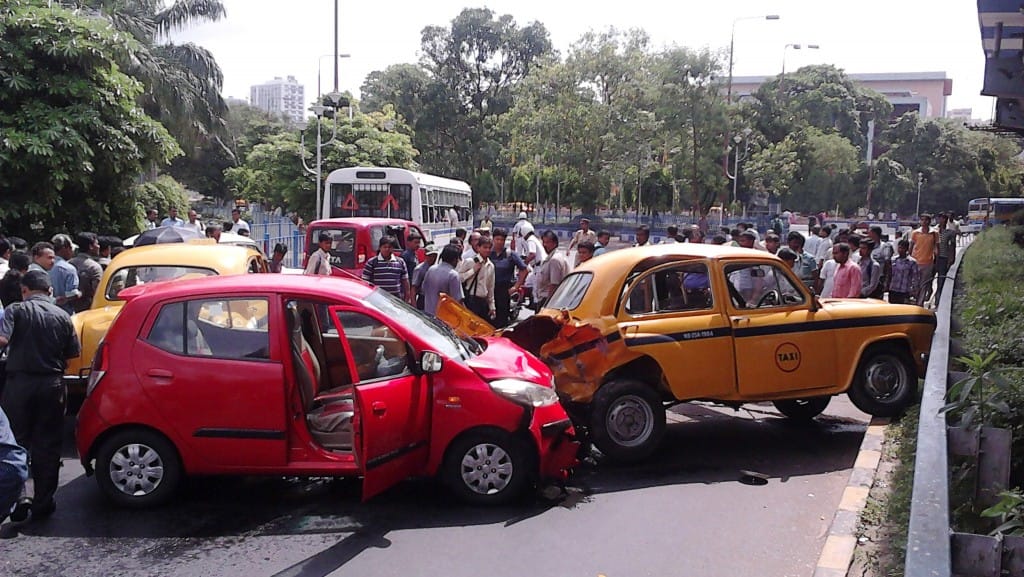
(Photo Credits- Biswarup Ganguly)
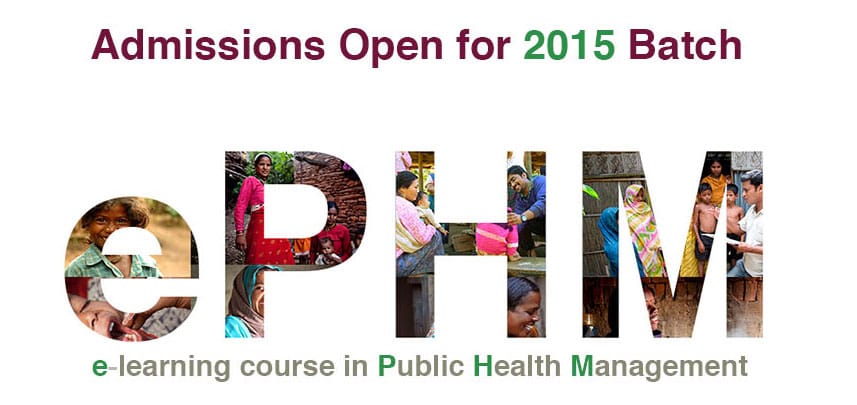
The institute has been providing an online platform for learning for the past two years. We introduced the online course on public health management for professionals and beginners across the country to gain an understanding of how to be good public health managers. So far, in the past two years we have successfully managed three batches and now have opened enrolments for the forth batch. Here we give you a snippet of what a classroom from the course looks like. This classroom focuses on introducing the students to health financing.
For more sample classrooms click on the link – https://goo.gl/QzYhUL

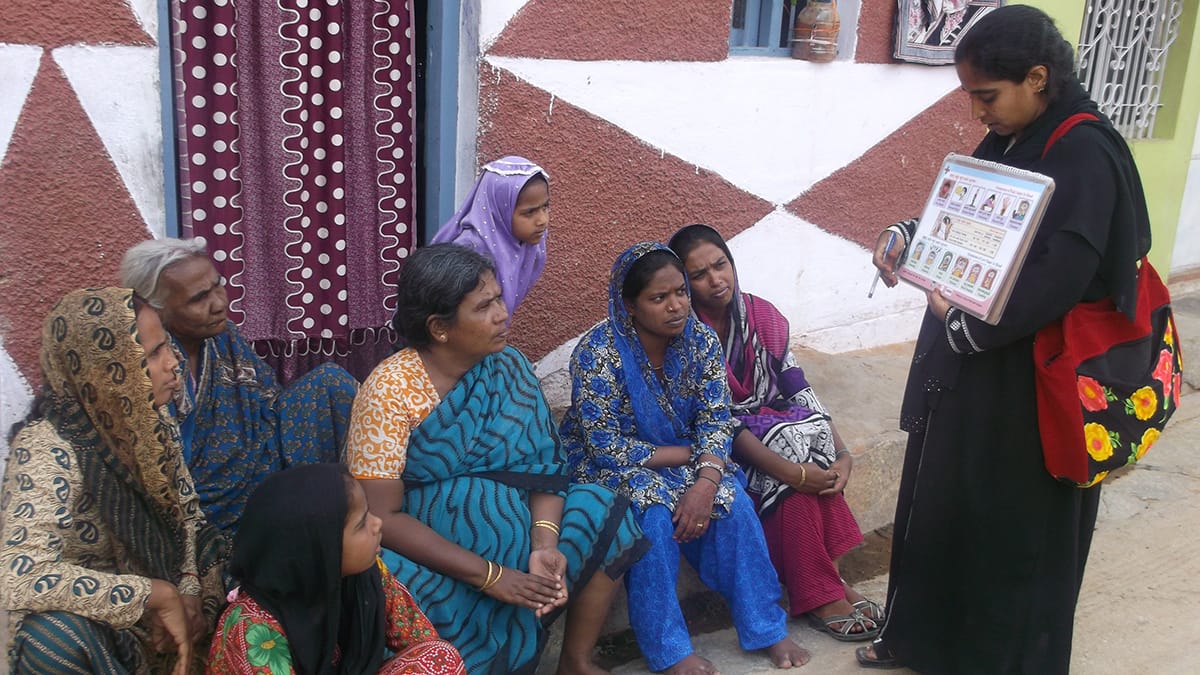
This article originally appeared on BMJ Blogs on April 24, 2015 under the same title.
This blog is my reflection on regular field visits as part of the urban health action research project that I am currently working on. The field site for the project is a very poor neighbourhood of Bengaluru called K.G.Halli. This neighbourhood has families who earn their living as daily wageworkers to a few upper middle class families.
Let me give a brief overview of the project. It is an action research project which aims to improve access to quality healthcare especially for people with chronic conditions among the urban poor. As a project initiative, we identified three ladies from the same community and trained in providing awareness sessions for chronic conditions. These community health assistants have been working in the neighbourhood since 2009. They go door to door to deliver awareness sessions on diabetes and hypertension, to inform patients what the preventive measures are that the patient and the family can adopt on a daily basis, how diet plays an important role in managing their conditions, and the importance of regular medical check ups. These ladies are an important interface between the community and healthcare providers. Over the years they have become the “go-to” people to seek advice.
Recently I accompanied these ladies for their regular home visits. As they were walking in the lanes, familiar faces greeted them, some asked them to come and join them for a cup of coffee. These were greetings on one end of the spectrum, on the contrary we had to knock on an average of 20- 25 houses and then there would be one patient or a family who would greet us. A few passers by whom we met on the way had curious questionable looks on their faces, and a few even said: “There is no patient in the family.”
Some responses I found were very startling and some of the interesting ones, which did capture my attention, were:
“I already have the disease, how will this awareness bring about a change?”
“ I do not have a ration card, that is more important to me, awareness is not.”
“ Why don’t you give us money?”
“ It is your job as a doctor to find cure and medicines, it is not the responsibility of the patient to make any dietary changes.”
“ Why are you scaring me after me being diagnosed with the disease? I do not need this information.”
“Do you have to meet certain targets? How many houses do you have to visit like these in a day?”
Another experience cited by the health assistants was, “we are educated people, we do not need your information: you would be better off educating the poor people.”
These reactions from the community, which I worked in for almost two years, made me realize that I was wearing blinkers as a young researcher and a medical doctor. It made me realize that the training in research or medical school did not give me any skills to understand these reactions or even think which other strategy I could use to communicate effectively and motivate people.
They sought a completely different path to find out about or understand their disease. Most of the patients that we visited asked us “why aren’t you carrying a glucometer to let me know if my blood sugar levels are under control.” The patients just wanted a figurative number, which is simpler for them to understand and to reassure them that their disease is under control. They would rather not listen to the “science” but to an immediate solution to their problem.
Their voices echoed completely different priorities, such as ration cards, cheaper sources of medicines, or jobs. Another question which came to my mind was whether my chosen strategy of conducting door-to-door awareness sessions was indeed the best strategy for the community or for the researcher?
The comfort of science and research were no longer my allies in solving my dilemma, reiterating the steps to actually listen to the community and understand their priorities better than going with my priorities as a researcher. How can a young researcher like me help them in securing a ration card of any other welfare schemes? Maybe there were unexplored pathways to find a common ground which has a possibility to solve some demands of the community as well as bring in about motivation in the community for adopting a healthier lifestyle.
Written by – Mrunalini Gowda, Research Officer at the Institute of Public Health, Bengaluru.